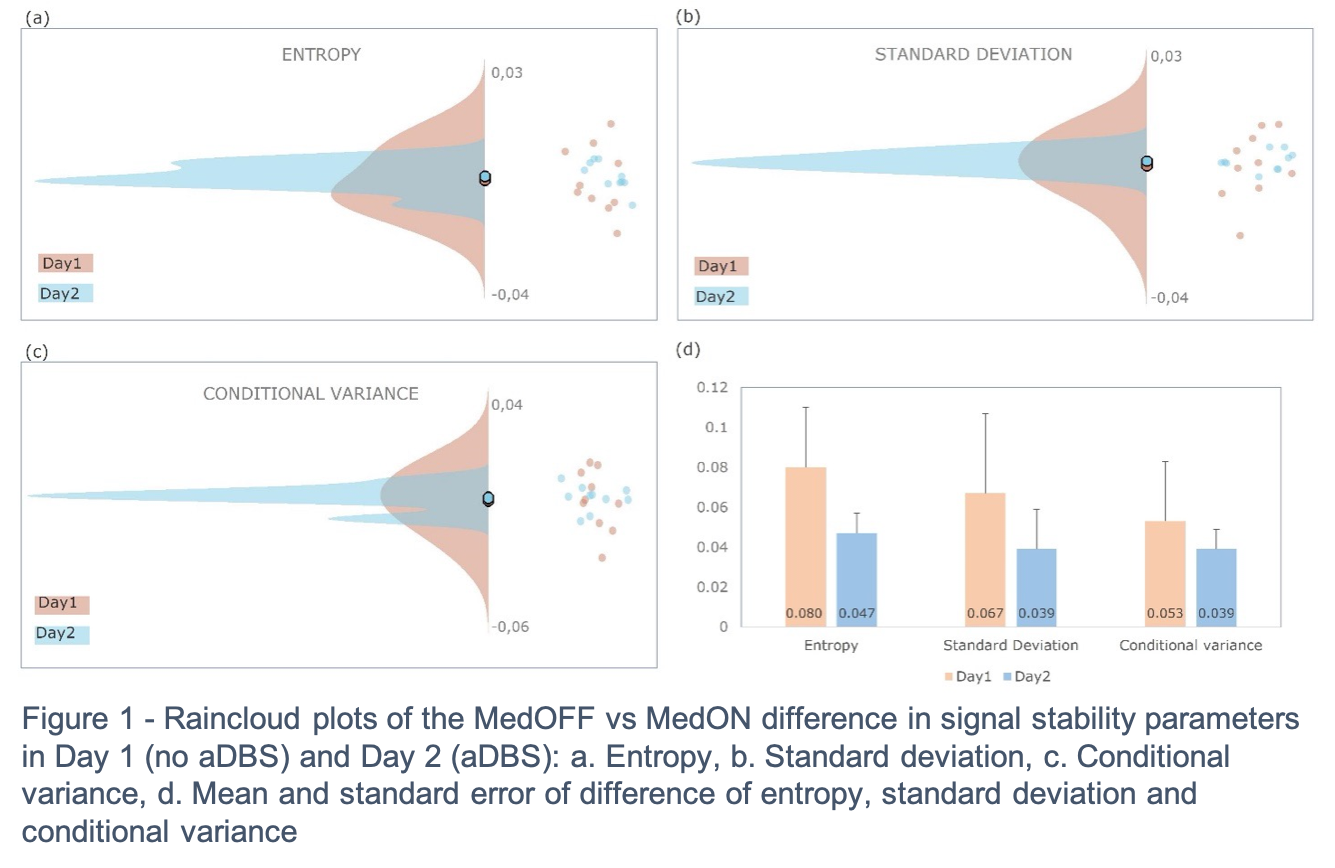Category: Technology
Objective: In this work, we describe a methodology to assess whether a specific oscillation, considered as biomarker for adaptive DBS (aDBS), is stabilized during stimulation, thus providing significant insights to implement effective closed-loop algorithms.
Background: The aDBS approach is now becoming more and more closer to the clinical practice, with several patients implanted with devices capable of sensing local neuronal oscillations (local field potentials, LFPs) while delivering electrical stimulation [1]. Presently implemented closed-loop algorithms are still in their infancy and rely on a single biomarker, the power of the beta LFP oscillation (11-30 Hz)[2]. The underlying hypothesis is that DBS should suppress beta oscillations or stabilize them to a lower power level. However, the effect of aDBS over beta oscillations in terms of stability has not been investigated yet.
Method: We retrospectively analyzed LFPs recorded during aDBS in a 2-days experimental protocol, fully described in [3]. We considered 20-minutes segments corresponding to MedOFF and MedON conditions, recorded without (Day 1) and with (Day 2) aDBS turned ON. We estimated the entropy (a measure of the “degree of disorder” of a system) and the standard deviation of the beta oscillation in each segment. Then, we applied Auto Regressive Moving Average (ARMA) modeling aimed to better understand the stochastic process underlying the signal itself. We finally compared the results in signals with and without aDBS.
Results: We included data from 10 patients, with full 8-hours recordings both with and without aDBS, and extracted 80 segments each, 20 per condition (MedOFF/StimOFF, MedOFF/StimON, MedON/StimOFF, MedON/StimON). We observed that entropy and standard deviation were generally lower during stimulation as well as the stochastic properties of the signals (conditional variance of the residuals), both in MedOFF and in MedON, thus suggesting that aDBS increased beta stability when compared to no-DBS (Table 1). Also, the signal variability changes between MedOFF and MedON were significantly negative in Day 2, while they were more variable in Day 1 (Fig1).
Conclusion: We proposed a methodology that provided insights on the stability of beta oscillations during aDBS. The results suggested that aDBS combined with levodopa induces a significant decrease in signal variability whereas levodopa alone does not.
To cite this abstract in AMA style:
S. Marceglia, A. Caruso, M. Prenassi, M. Arlotti, T. Bocci, L. Borellini, S. Pastore. Stability of beta oscillations during aDBS in Parkinson’s disease: a methodology for reliable assessment [abstract]. Mov Disord. 2023; 38 (suppl 1). https://www.mdsabstracts.org/abstract/stability-of-beta-oscillations-during-adbs-in-parkinsons-disease-a-methodology-for-reliable-assessment/. Accessed January 31, 2026.« Back to 2023 International Congress
MDS Abstracts - https://www.mdsabstracts.org/abstract/stability-of-beta-oscillations-during-adbs-in-parkinsons-disease-a-methodology-for-reliable-assessment/


